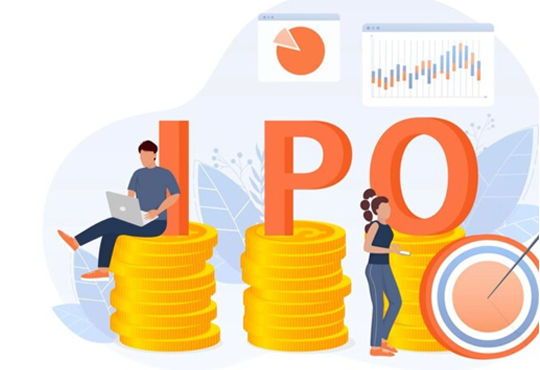Decoding IPOs: A Beginner's Guide to Initial Public Offerings
Vishal Pathak, Content Writer | Wednesday, 28 February 2024, 04:21 IST
 IPOs offer investors a chance to participate in the early phases of a company's public journey and maybe earn substantial profits. For new investors trying to make their way through this changing market, it is essential to comprehend the basics of initial public offerings (IPOs), including the IPO allotment status and forthcoming IPOs. IPOs are the critical point at which a privately held firm becomes publicly traded by making its shares available to the public for the first time. The procedure by which a business, previously entirely private, puts up its shares for public trading on an exchange is known as an IPO or initial public offering. Investment banks are hired by a company when it goes public to ensure a significant influx of capital from the public. Primary markets and secondary markets are the two categories of share markets. Public participation in the most recent IPOs is possible through primary markets.
IPOs offer investors a chance to participate in the early phases of a company's public journey and maybe earn substantial profits. For new investors trying to make their way through this changing market, it is essential to comprehend the basics of initial public offerings (IPOs), including the IPO allotment status and forthcoming IPOs. IPOs are the critical point at which a privately held firm becomes publicly traded by making its shares available to the public for the first time. The procedure by which a business, previously entirely private, puts up its shares for public trading on an exchange is known as an IPO or initial public offering. Investment banks are hired by a company when it goes public to ensure a significant influx of capital from the public. Primary markets and secondary markets are the two categories of share markets. Public participation in the most recent IPOs is possible through primary markets.
A vital factor in the IPO investment process is the IPO allotment status. It describes how shares are distributed to individual investors who submitted applications for shares during the IPO subscription period. The allotment status shows whether or not shares were awarded to an investor at the initial public offering (IPO) and, if so, how many shares were given. Investors have multiple options to access the IPO allotment status, such as stock exchanges, the IPO registrar's official website, or their individual brokers.
It is crucial for new investors to comprehend the variables affecting IPO allotment status as they investigate IPO chances. The demand for shares, the size of the initial public offering (IPO), the amount of subscription paid by the investor, and the percentage of shares set aside for certain investor groups are all taken into account throughout the allocation process. Generally, partial allotments, where investors receive only a portion of the shares they sought may occur from overloaded initial public offerings (IPOs).
To take advantage of possible investment opportunities, investors should keep track of impending IPOs in addition to IPO allotment progress updates. Staying up to date with impending initial public offerings (IPOs) enables investors to thoroughly examine and assess potential businesses, assessing their financial standing, potential for expansion, and market patterns prior to making investment choices. Attending upcoming IPOs needs serious thought and research. To determine the IPO's investment potential, investors should evaluate the company's business model, competitive landscape, management team, regulatory environment, and valuation criteria. Investors can reduce the risks connected with their investments and make well-informed decisions by carrying out in-depth research and speaking with financial experts. Go Airlines, MobiKwik, etc., are a few of the upcoming IPOs for 2024.
In summary, initial public offerings (IPOs) present a stimulating chance for investors to partake in the development narrative of nascent enterprises and potentially yield considerable profits. Novice investors can successfully capitalize on IPO investment opportunities and make well-informed investment selections by learning the fundamentals of initial public offerings (IPOs).




.jpg)